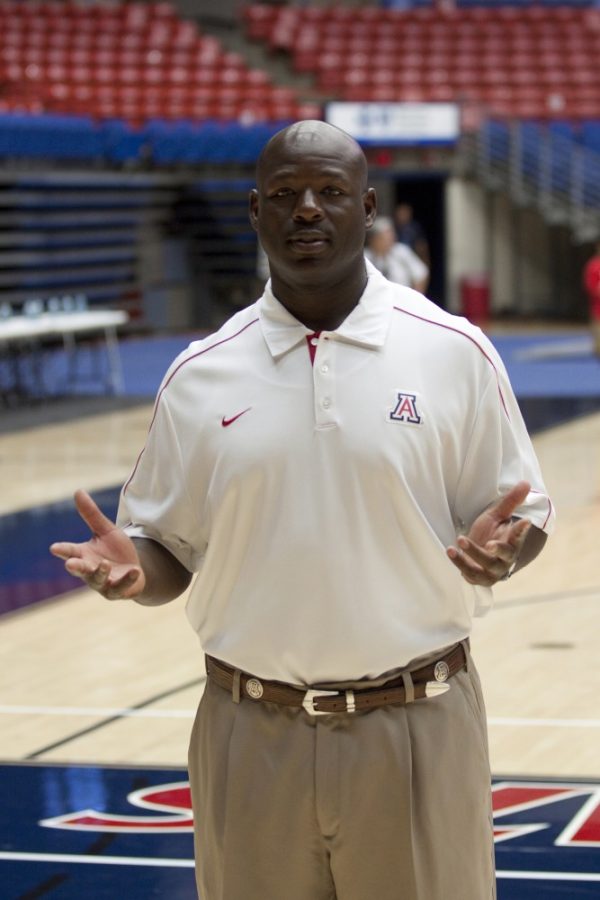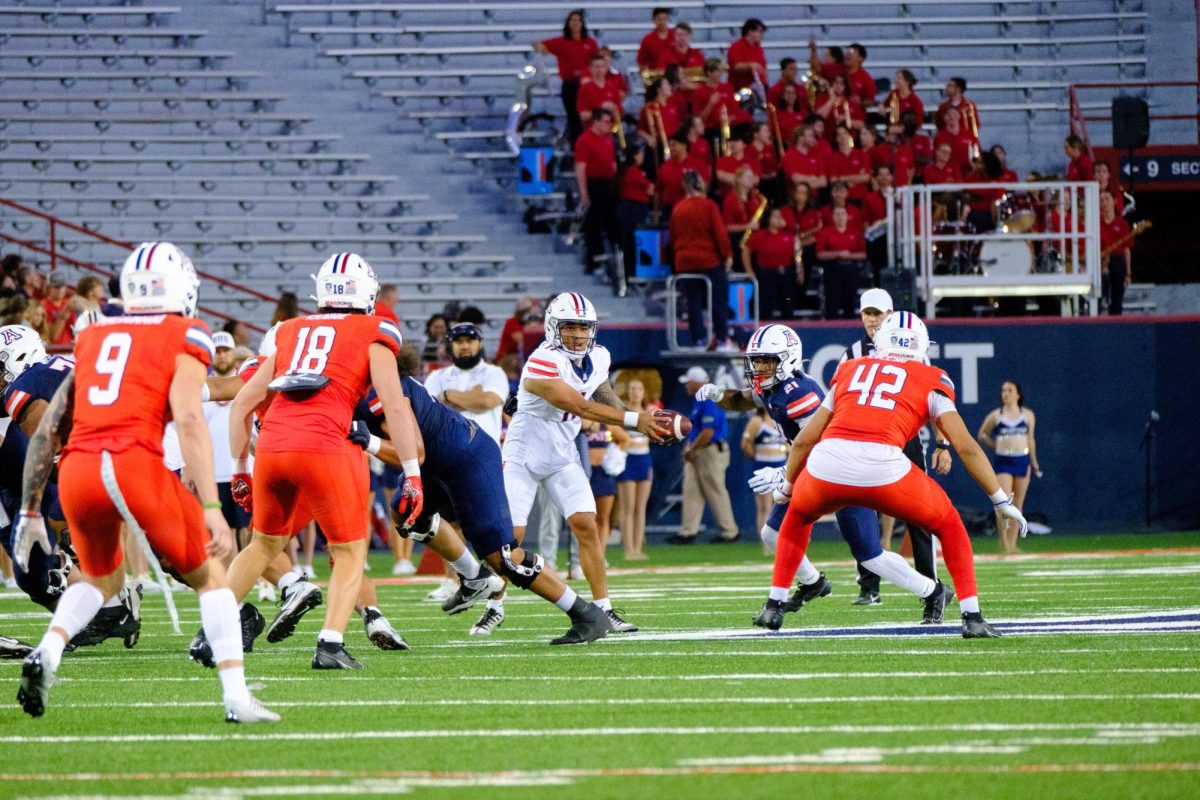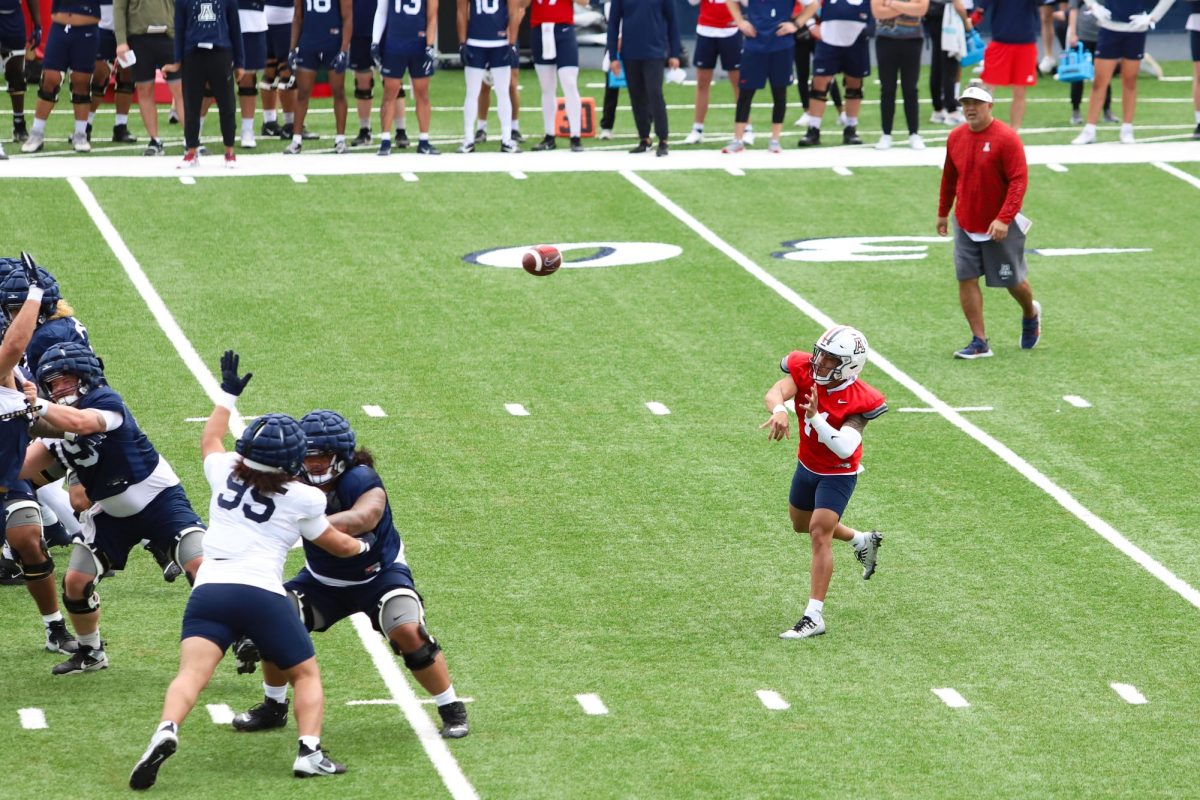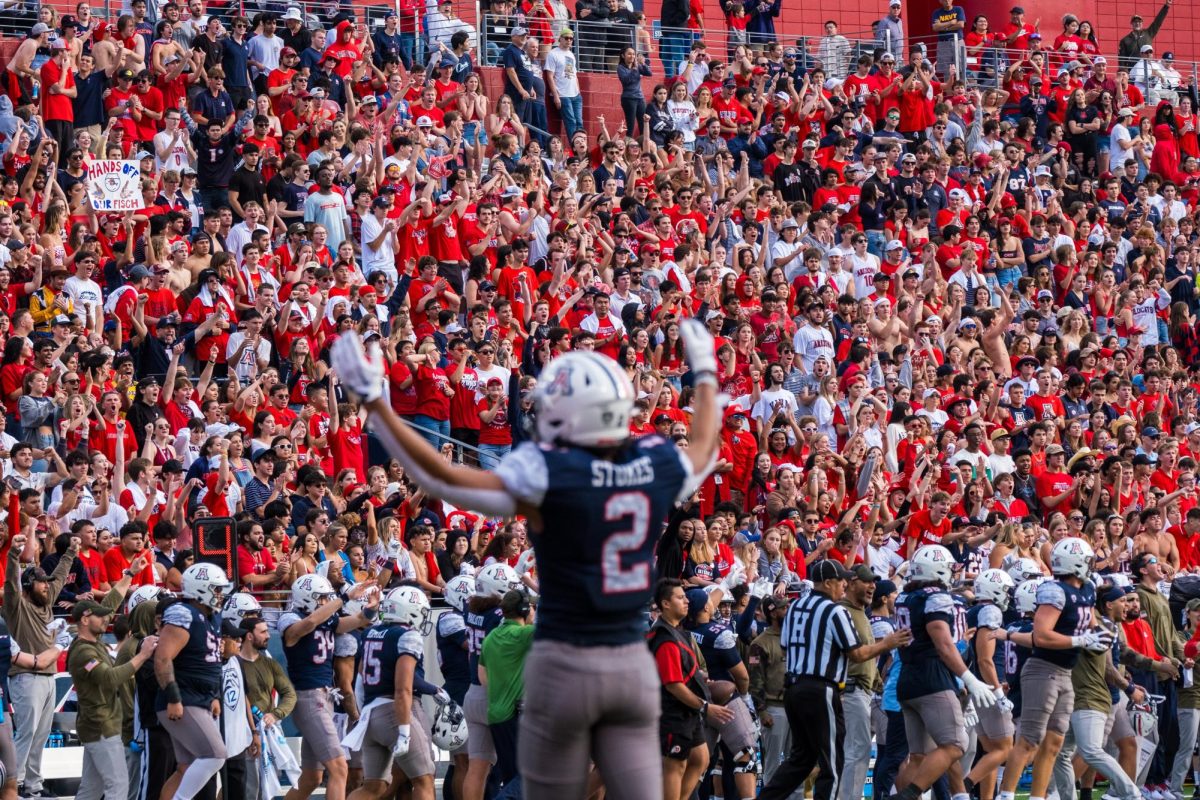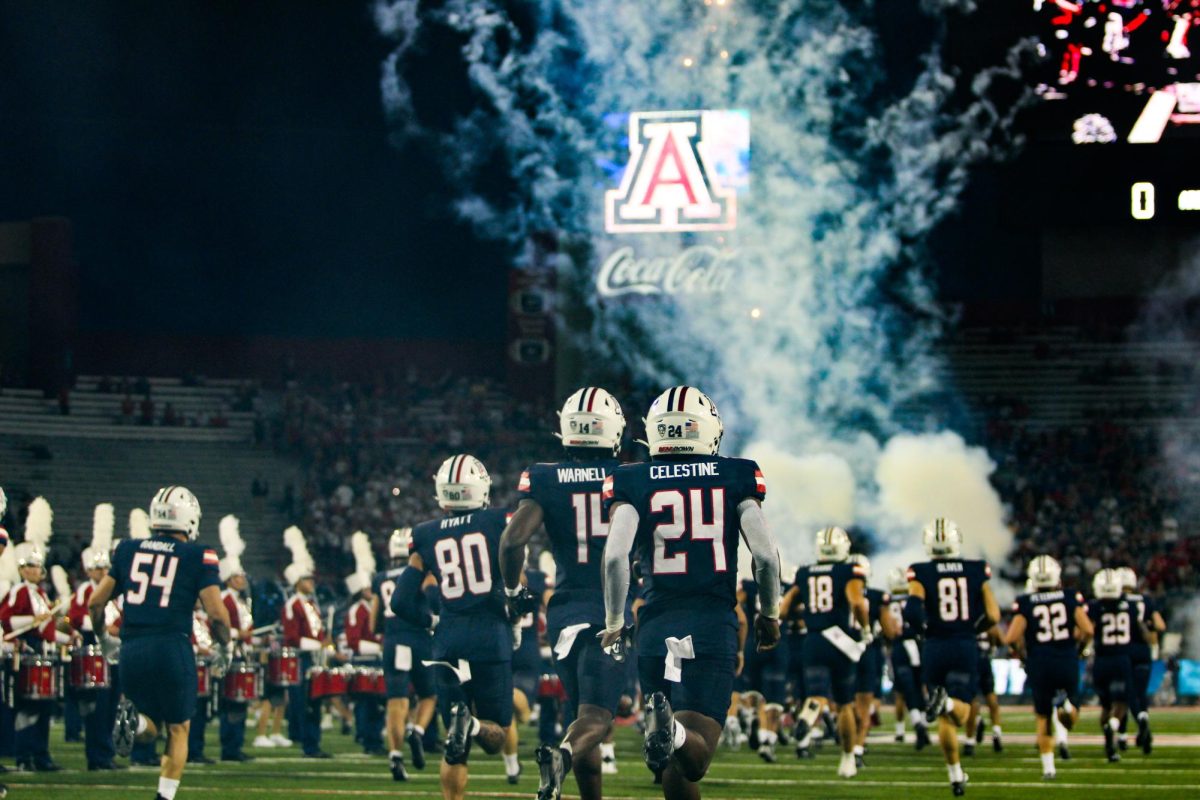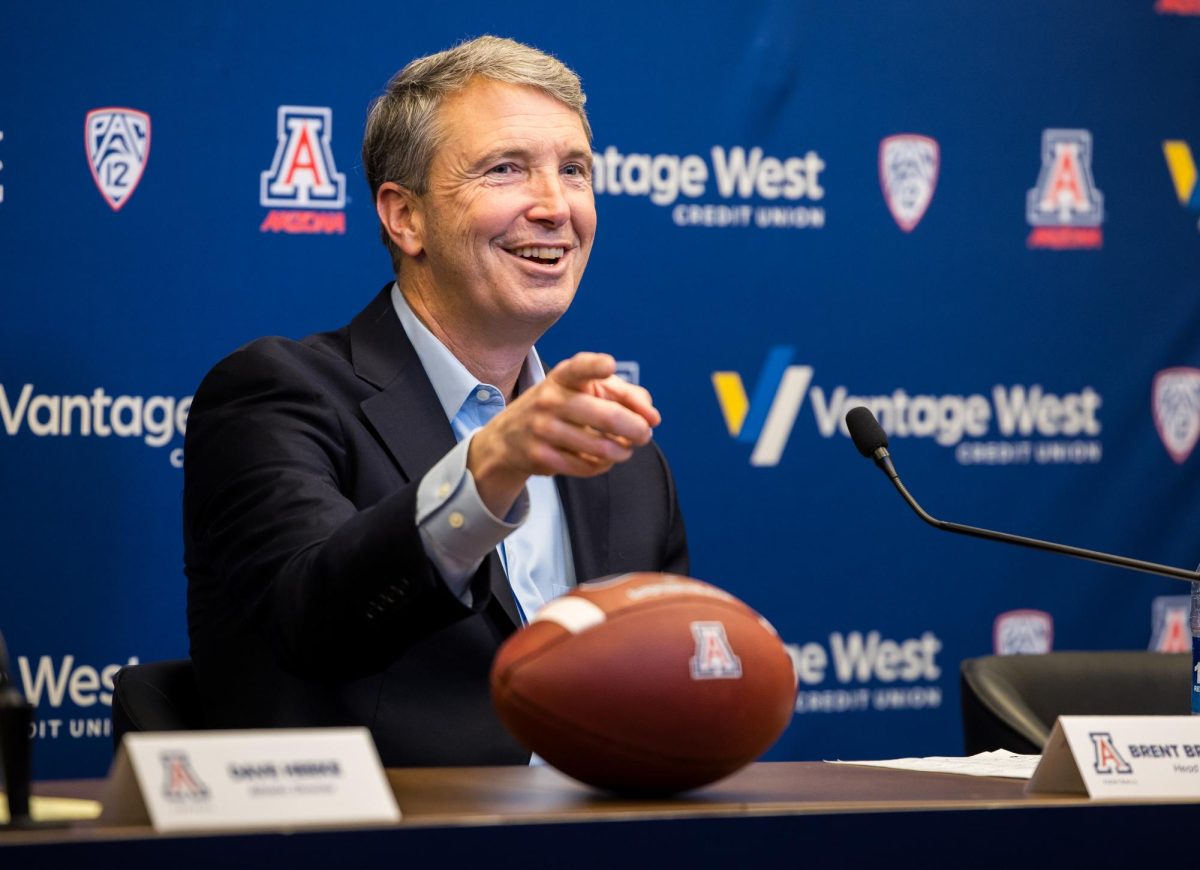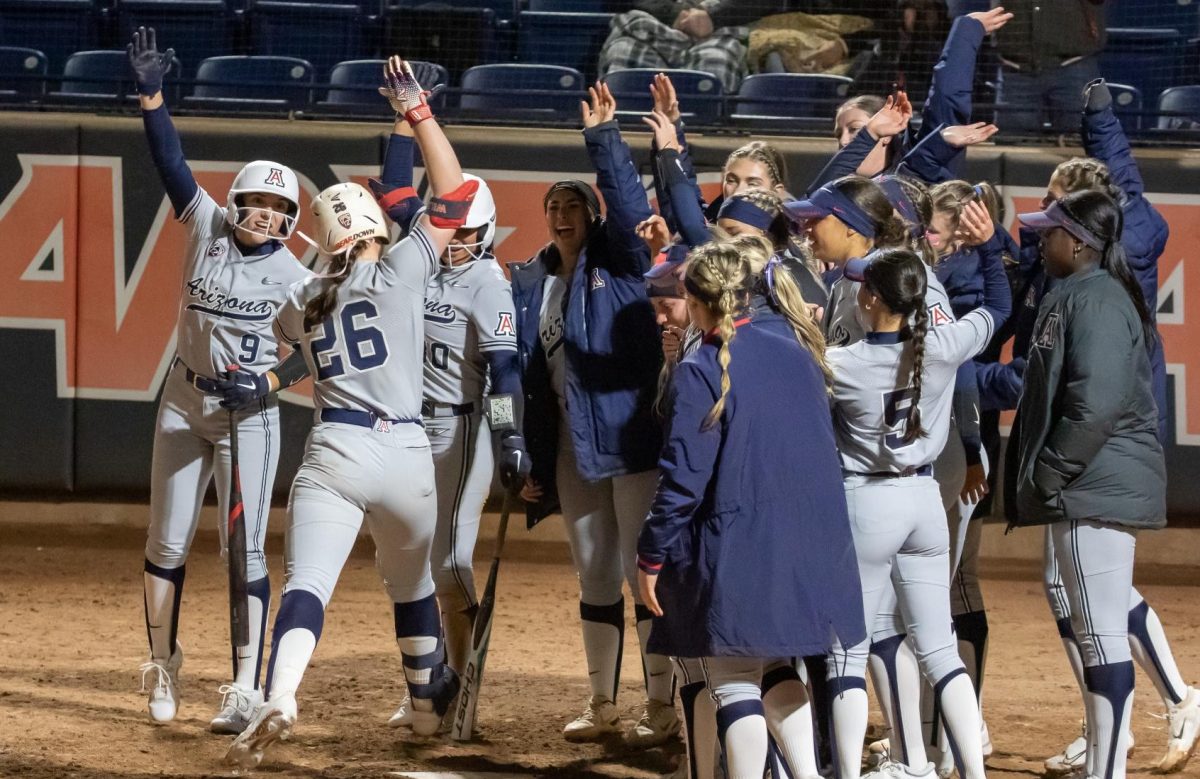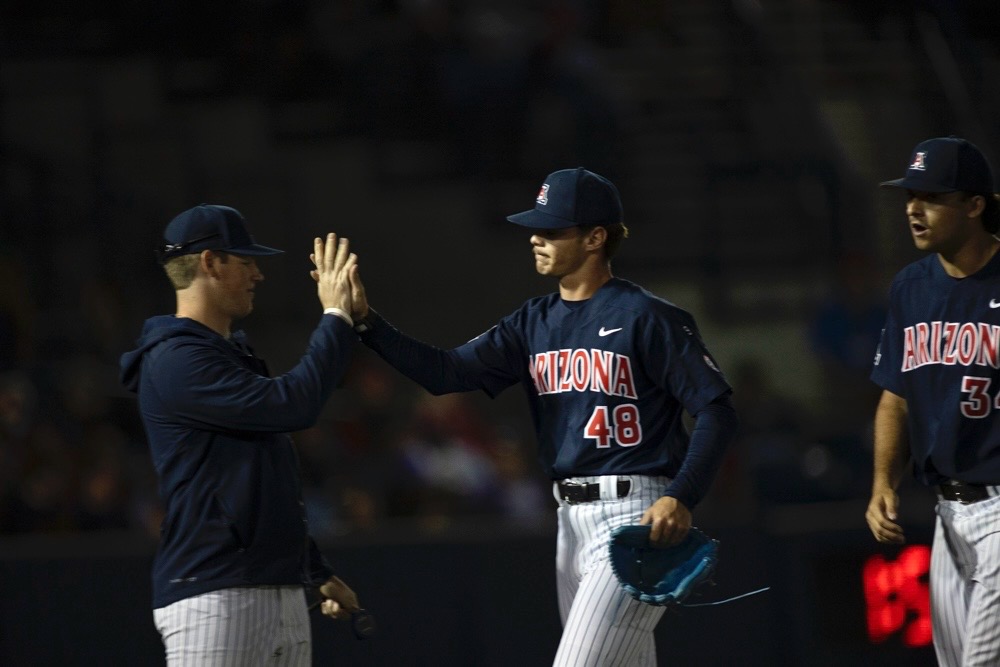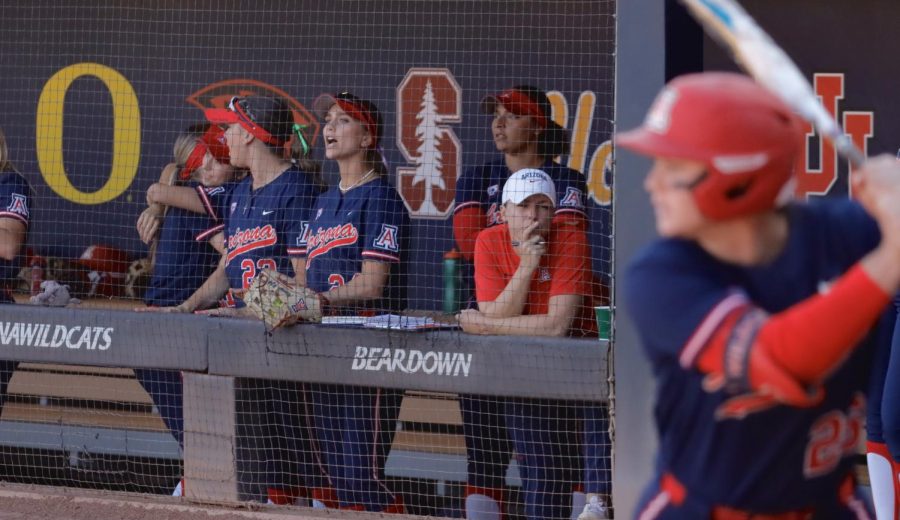After 16 years on the job, Arizona receivers coach Tony Dews understands football. But the most important coaching aspect to him isn’t on the field. Instead, Dews focuses on preparing Wildcats receivers for life after football.
“Pastor Dews,” as he is affectionately referred to by the receiving corps, is in his fourth stint coaching alongside Wildcats head coach Rich Rodriguez, but Arizona is his 10th stop on a coaching career that has seen him emerge as not only a 2007 Fiesta Bowl champion at West Virginia, but as a role model to his players.
“He’s a good man, like a father out here on the field,” junior wideout Richard Morrison added. “He preaches to you and tells you what you need to hear.”
Dews began his coaching career as a high school offensive line coach in Georgia after a five-year career as a tight end at Liberty University, where he learned many of the lessons he strives to instill in current Arizona players.
“I got into coaching because I had good coaches along the line that would talk to you not only about football, but about life,” Dews said. “I always talk to them whenever there’s a teaching moment about life, I try to make the point.”
The life lessons Dews tries to instill in his players are “nothing specific,” he says — but vary from toughness, particularly mental toughness, to parenthood. The group may not understand the importance of his lessons now, but he says he tries to make them as relatable as possible.
One thing he harps on more than anything, though, is the importance of hard work in his receivers.
“He tells us to work,” Morrison said. “Don’t loaf, and do your best every time you do it.”
At one practice, Dews took the time to talk about unemployed fathers that are mentally capable enough to be strong in the face of adversity.
“You have to be mentally tough to deal with the things that come at you in life,” Dews said. “This is just a small thing, football. What happens when you get in the real world and you have to deal with real life?”
As a boy, Dews and his siblings would go to church with his mother, but religion isn’t what motivates him to preach to his players about life after the sport. Instead, football taught Dews most of the life lessons he is attempting to relay to players like Dan Buckner and Terrence Miller, and all the way down to redshirt freshman walk-on Johnny Jackson.
“I don’t think it has anything to do with religion; I’m not speaking religiously per se, to the kids,” Dews said. “When I’m talking to them, it’s more about life lessons than the religious part of it.”
One of his most important life lessons is pretty straightforward — do the right thing.
In Dews’ eyes, players will have faced so much adversity in one game, not just the whole year, and that sometimes it’s hard to do the right thing, but that doesn’t mean players should not heed his words off the football field.
Dews first began to understand the messages his coaches gave him toward the end of his playing days at Liberty, where he says the messages became engrained in his mind.
As time wore on and his coaching career took him from Georgia to Pennsylvania, Michigan, Nevada and West Virginia, in addition to the time he spent “doing readings and devotions,” he became more active religiously.
Every coaching staff Dews has been a part of has had some sort of chapel that players and coaches have the ability to use, and the use of such chapels in union with learning to deal with other people has already made an impact on this year’s crop of receivers.
“It works for us because the receivers are an immature group, so Pastor Dews really brings us back in,” Miller said. “Every message is not just football. It’s football and becoming a man, and that’s what football is about. He’s done a great job with that.”



